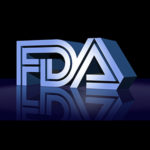 The FDA said yesterday that it awarded 21 clinical trial research grants totaling more than $23 million over the next 4 years to stimulate product development for patients with rare diseases.
The FDA said yesterday that it awarded 21 clinical trial research grants totaling more than $23 million over the next 4 years to stimulate product development for patients with rare diseases.
The Orphan Products Clinical Trials Grants Program has awarded more than $370 million to fund more than 590 clinical studies since its creation in 1983, according to the federal safety watchdog. The grants are intended to fund clinical studies examining products that could substantially contribute to FDA approval of treatments for rare diseases.
Sixty-eight grant applications were received this fiscal year; the FDA funded 31% of them. In line with Vice President Joe Biden’s National Cancer Moonshot Initiative, 24% of the grant awards fund studies that will enroll patients with cancer.
Two groups received funding for clinical studies examining the use of a virus to infiltrate cancer cells and destroy tumors. Gregory Friedman of the University of Alabama was awarded $750,000 over 3 years to conduct a Phase I study of an engineered herpes simplex virus to target chemotherapy and radiation-resistant pediatric brain tumors, such as medulloblastoma. Similarly, Frank Tufaro from DNATRIX won $2 million over 4 years to launch a Phase II trial for an oncolytic virus for the treatment of glioblastoma, a neurological brain tumor that is characterized by its resistance to traditional therapies.
Researchers from Case Western Reserve University won $2 million over 4 years to conduct a Phase II study of a networked neuroprosthesis for patients with cervical spinal cord injuries. The study is slated to enroll 10 patients and evaluate their ability to perform grasp-release tests and pick up, move, and release objects using a neuroprosthesis.
Researchers from Elorac were awarded $2 million over 4 years to conduct a Phase III study of naloxone hydrochloride lotion as a treatment for pruritus, or severe itching of the skin, that results from the mycosis fungoides form of cutaneous T-cell lymphoma. The study will enroll 160 patients ages 21 or older and will compare a 0.5% naloxone hydrochloride lotion to a placebo over a 14 day treatment course.
A group from the University of Michigan won $2 million over 4 years to evaluate the use of an inhaled activase as a treatment for acute plastic bronchitis, a rare formation of obstructive airway casts made of fibrin that affects kids. Using a small nebulizer, 24 kids ages 5-16 will take a tissue plasminogen activator to test the safety and efficacy of the regimen, as well as identify potential candidate biomarkers of the inhaled drug response.
“We are proud of our 30-year track record of fostering and encouraging the development of safe and effective therapies for rare diseases through our clinical trials grant program,” Dr. Gayatri Rao, director of FDA’s Office of Orphan Product Development, said in prepared remarks. “The grants awarded this year will support much-needed research in 21 different rare diseases, many of which have little, or no, available treatment options.”

